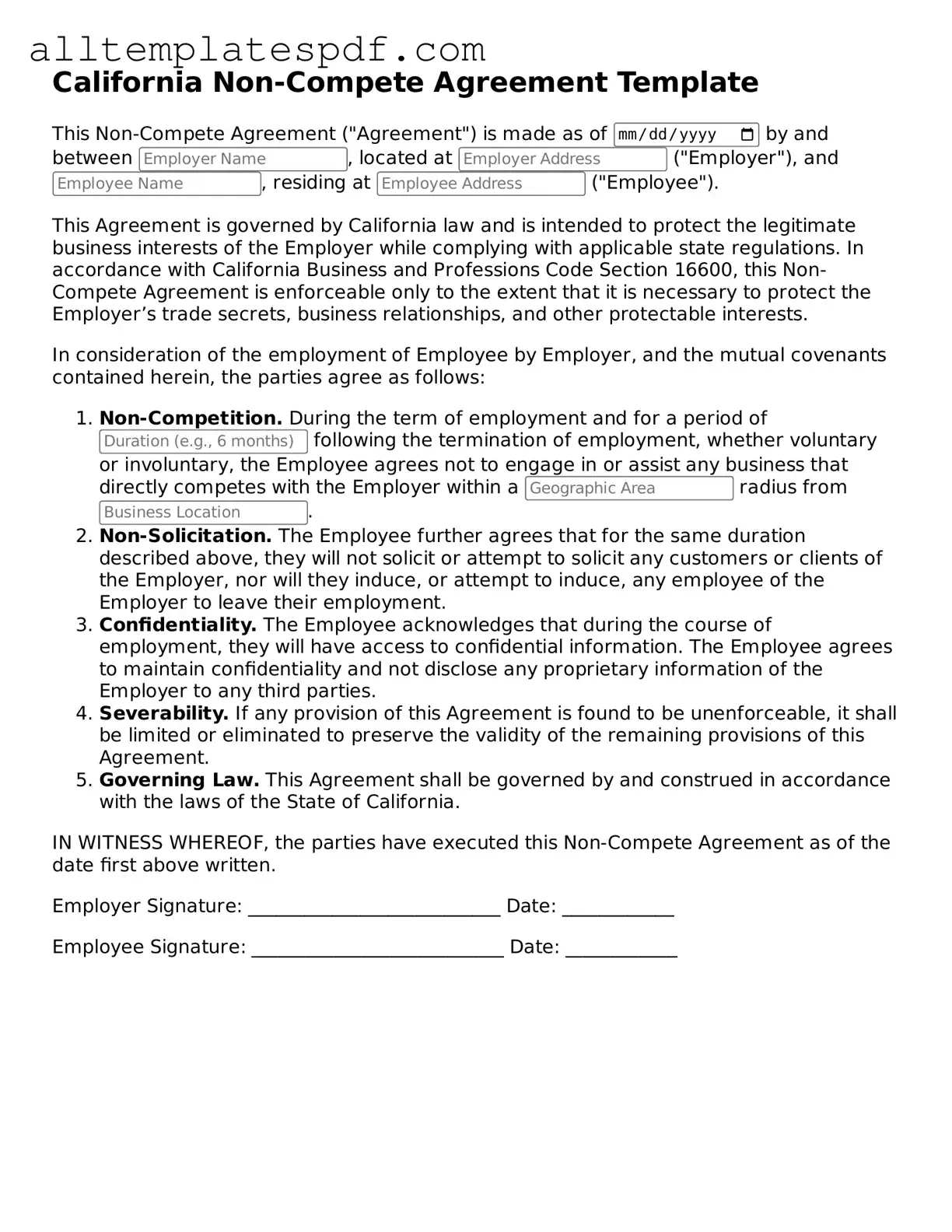Blank Non-compete Agreement Template for the State of California
A California Non-compete Agreement is a legal document that restricts an employee's ability to work for competitors or start a competing business after leaving their current employer. While these agreements are common in many states, California has specific laws that limit their enforceability. Understanding the nuances of this form is crucial for both employers and employees to navigate their rights and obligations effectively.
To learn more and fill out the form, click the button below.
Open Editor

Blank Non-compete Agreement Template for the State of California
Open Editor
Fast and easy form completion
Complete Non-compete Agreement digitally — fast and easy.
Open Editor
or
↓ Non-compete Agreement PDF Form
